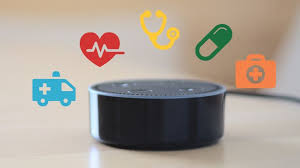Noting from studies how easily AI-powered chatbots can be manipulated to craft convincing phishing emails.
Connected care in the home has the potential to address both the preferences of older adults and the societal imperative to care for a rapidly growing aging population
A practical guide to understanding autonomous AI agents, why they matter for healthcare governance, and what to do about them.
The growing ecosystem of devices and products serving peoples’ health and well-being shows us that innovators already see the opportunity to serve the fast-growing market for self-care among people 50 years of age and up.
For nearly twenty years, one thing has felt inevitable: when boomers reach “old age,” senior living demand will surge. And yet ..

 The boomer-and-beyond market has caught the eye of the tech industry.
The boomer-and-beyond market has caught the eye of the tech industry.  It’s been an interesting technology week
It’s been an interesting technology week Aging in place – the latest trend. Rant on. People want to age in place – just ask them, as
Aging in place – the latest trend. Rant on. People want to age in place – just ask them, as  Surprise (maybe) – Philips puts Lifeline business up for auction. How do I know this? Not from any news article other than
Surprise (maybe) – Philips puts Lifeline business up for auction. How do I know this? Not from any news article other than  Venture interest in Aging in Place – is it a turning point?
Venture interest in Aging in Place – is it a turning point?  What happens when people avoid health-related in-person care? Rant on. Nearly a third of older adults, according to a
What happens when people avoid health-related in-person care? Rant on. Nearly a third of older adults, according to a  August in the time of Covid-19.
August in the time of Covid-19.